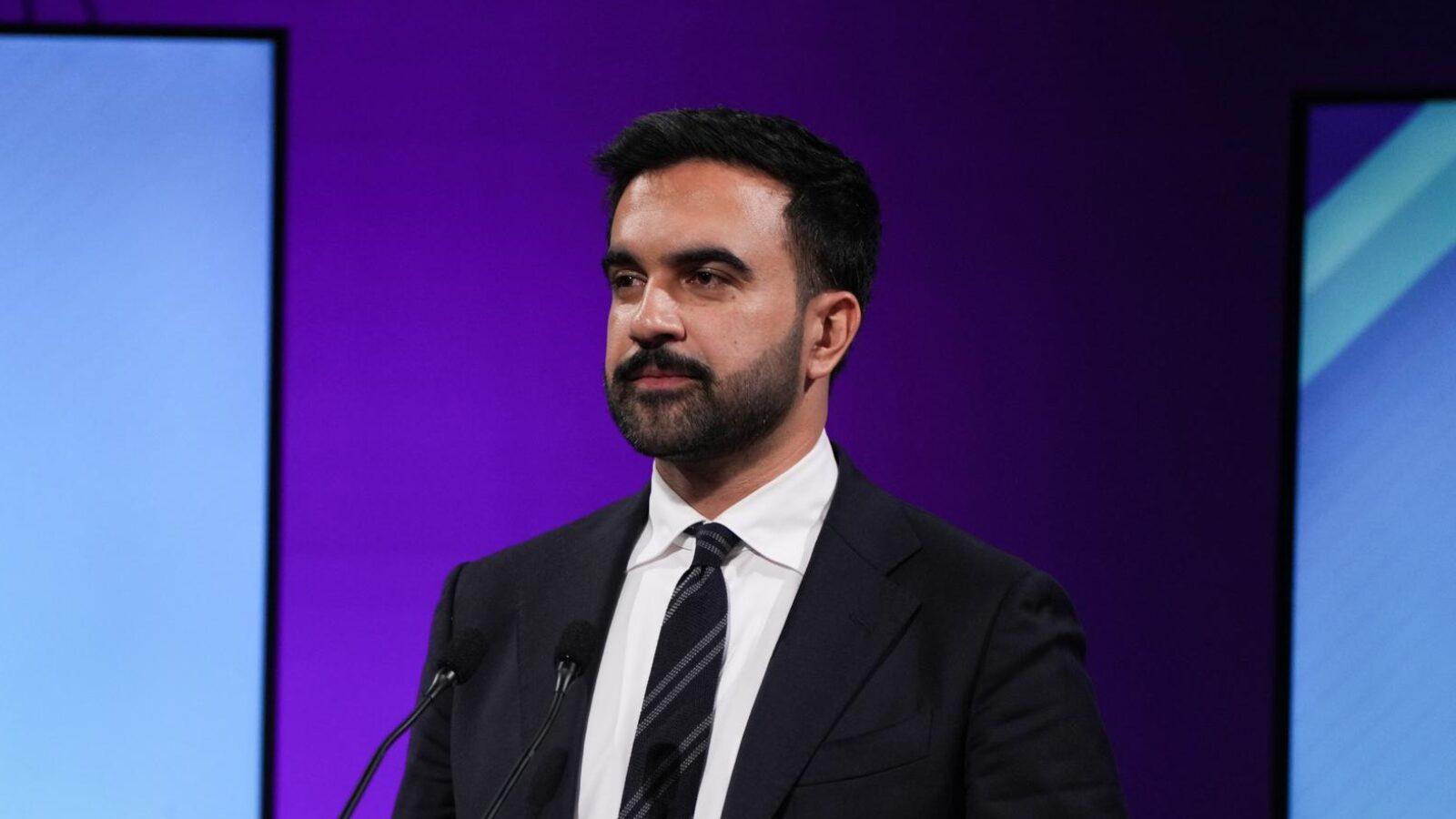The radical Mamdani's victory in New York attracted attention, but his performance was worse than that of other Democrats.
Listen to this experience
on Tuesday nightA year after Donald Trump's re-election, Americans are back at the polls, with keynote speakers including the governors of Virginia and New Jersey.and the Mayor of New York CityIt has created a completely different future for Democrats.
In Virginia, Democrats took back the state House by nearly 15 points, taking back a state that Republicans lost four years ago.In New Jersey, Rep. Mikie Sherrill retained party control by a similar margin. In New York, a Democratic candidate also held onto the mayor's seat — but Zohran Mamdani's lead was the narrowest in a generation, coming back about 30 points from Eric Adams' landslide victory in 2021.
If the Democrats were smart, they would make their above-average moderates—Abigail Spanberger in Virginia and Sherrill in New Jersey—models for the future.Both built campaigns on competence and moderation, rejecting the extremes that alienated independent voters in both parties.
The women at the general meeting, a little ashamed of the public drama, presented themselves, and called the vote of the suburbs something to be regretted.
But that's not the story Democrats are telling.Attention, oxygen and virus parts are all from Mamdan.The mayor-elect is a millennial socialist and Muslim rebel who built his brand by attacking the police, capitalism and the Jewish state.He won comfortably, if impressively, in one of the most Democratic cities in the country.Still the cameras followed him, not Spanberger or Sherrill.
Mamdani's overwhelming victory illustrates the limits of the left's appeal.He won the nomination by default, not by conviction.The moneyed establishment paved the way for scandal-ridden former governor Andrew Cuomo, leaving a void that a far-left challenger could fill.
Elsewhere, Sochanalist Branese fared even worse.1 In Minneapolis, Cartolar's Democratic mayoral electorate.Trumpet voters have reconciled themselves to the far-left experiment, but the same strategy doesn't seem to work in other ultra-progressive cities.
So why are people celebrating Mamdani and not his moderate colleagues?Part of the reason is sociological: people who work in Democratic politics are more progressive than those who vote Democrat.For them, Mamdani's rise is exciting – his moral project has energy and a sign that politics can look like activism again.
Another reason is structural: national media thrive on audience and innovation, not managerial skills.Mamdani makes good television;Not SpanbergAnd Republicans like to play along, eager to make Mamdani the face of the Democratic Party, so they can fight him elsewhere.
This attitude helps explain why the Republican Party had no chance in the New York elections.Republican of the Eternal Firebrand Curtis Silva, who finished with 7 percent of the vote.Silva's performance reminds us of Bloomberg's Joe Gavishall, who said, "The Republican Party has nothing to offer college schools."it's alright.Voters are not numerous, but in large democratic cities there is a large concentration of them.This is why Republicans are irrelevant locally despite winning nationally.
If the Republican Party wants to stop the "gentrification" of America's cities, it should at least try to compete in them.That would mean room for serious local candidates who are willing to put distance - both in tone and policy - between themselves and the national party.Rudy Giuliani and Michael Bloomberg were moderates in step with the party nationally, but conservative enough to pull the city to the right.
Today, Republicans nominate people like Sliwa who distance themselves from the Republican Party's national identity, but in less subtle ways – see President Trump's endorsement of Cuomo, not Sliwa, in New York.Republicans could do better, but they need to take cities seriously, and at least fund candidates who have a chance of winning.
When someone runs as a Republican in a Democratic city or state, it's nearly impossible to win unless they're clearly a moderate to the national party.Voters in these areas are generally not looking for ideological warriors, especially outside their usual party.When Virginia voters sent Republican Glenn Youngkin to Richmond four years ago, they did so because he turned his campaign into a show of mediocrity, as opposed to Democratic support for cultural fundamentalism.
For Democrats, the path is simple, though not easy: follow the voters, not the vibe.Spanberger and Sherrill won by acting as if politics meant running a state, leading a movement.This model is a sure path to national power and social stability.The Mamdani model is a shortcut to more cultural appreciation but fewer real victories.
For Republicans, the challenge is symmetrical: If they want to prevent cities from becoming laboratories for left-wing politics, they must nominate candidates who want to govern them.It means becoming trusted guardians of order, accessibility and opportunity.
On Tuesday, moderation won again.The only question is whether anyone on either side will pay attention.
Jesse Arm is vice president of external affairs at the Manhattan Institute.








